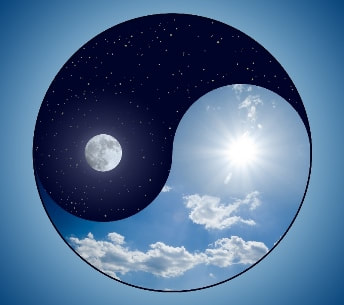 The body needs to find time to repair itself and schedules downtime so that structures can be restored to better function. Did you know that nostrils are periodically switched throughout the day and night, with one fully open and the other partially blocked in order that it can rest and repair from the fast moving particles you inhale? The intervertebral discs also have a repair cycle. When we lie down and take the weight off them, they decompress and fluid and nutrients are sucked in so that they are plumper by about 10% and we are actually measurably taller at the beginning as opposed to the end of the day by about 1.5-2cm. However, the rhythm is not just a response to our activity, scientists at the University of Manchester have discovered, there is an intrinsic diurnal rhythm in the DNA of the substance of the discs. Genes concerned with homeostasis (repair through the restoration of the balanced state) are switched on when we rest at night. It was found that chronic inflammation and ageing both reduced the ability of the disc tissue to respond to the circadian rhythms. Furthermore the loss of circadian rhythms led to accelerated deterioration of intervertebral disc tissue. Read more here Another team at University of Manchester, looking at the mechanisms behind the inflammation causing Rheumatoid Arthritis have found that the body also secretes natural anti-inflammatories (notably cryptochrome) to reduce inflammation during the night and again this is disrupted if we don't have a period of rest and darkness, read more here. So, what are the implications? The suggestion is that a regular sleep pattern, in darkness, is perhaps important to both mediate inflammation and to maintain disc health. The understanding that long term inflammation reduces the effectiveness of the circadian disc repair system means that a poorly regulated body clock could lead to a double whammy of decreased inflammatory suppression and of that inflammation then leading to a degraded intervertebral disc repair mechanism. There are some positives though; understanding how the body suppresses inflammation during the 'night' phase means we could potentially develop methods to artificially trigger that state, which could be especially useful for those with autoimmune conditions where inflammation is chronic and damaging, and understanding how ageing interferes with triggering nocturnal intervertebral disc repair may mean that we could find a way to reverse that also. In the meantime though, all in all, perhaps your grandparents were right when they exhorted you that 'early to bed, early to rise makes a man healthy, wealthy and wise'...well the first part, at least!
0 Comments
Your comment will be posted after it is approved.
Leave a Reply. |
Archives
February 2024
AuthorDamian is the principal osteopath at Vauxhall Village Osteopathy and Oval Osteopathy Categories
All
|


 RSS Feed
RSS Feed


